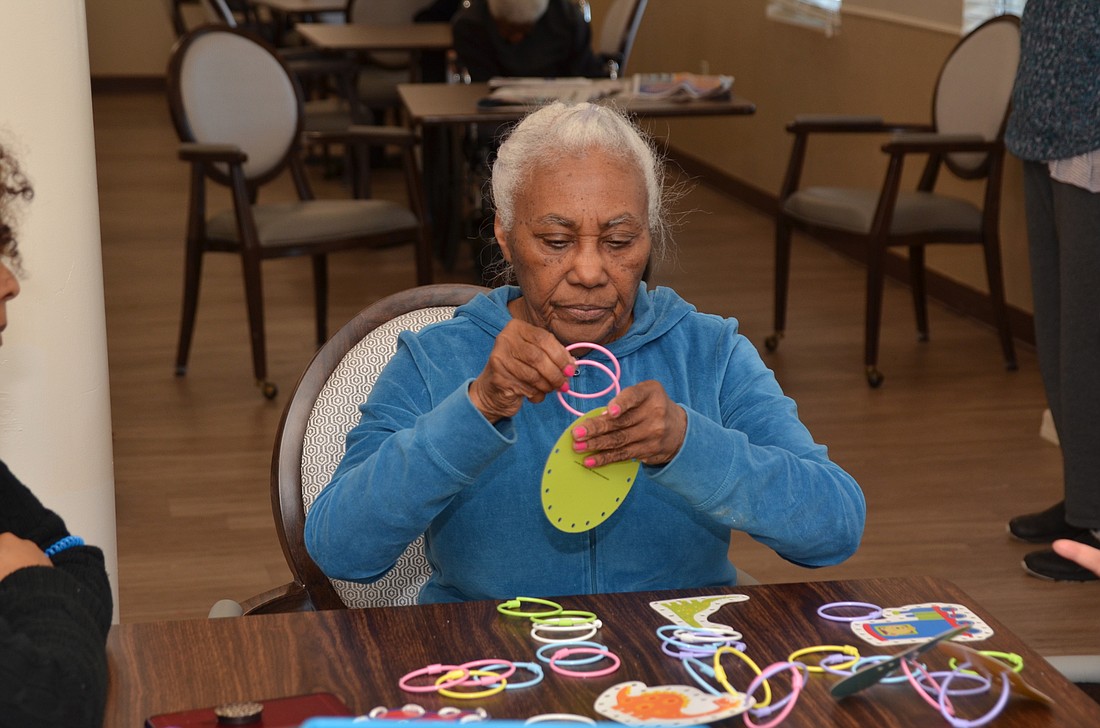- December 13, 2025
-
-
Loading

Loading

In the 1960s, when senior citizens could no longer care for themselves and they had no family in the area, they had few options and typically ended up in a nursing home or retirement home that provided 24-hour care. Many of the early facilities basically were hospital-like institutions offering little more than medical care and regular meals.
The 1987 Nursing Home Reform Act provided guidelines and minimal standards for such facilities — and the public’s perception started to change as nursing homes improved and appeared to be an appealing option for seniors.
A decade ago, there was just a handful of skilled-nursing and assisted-living facilities in West Orange County. Today, that list is extensive — and it continues to grow as municipalities are discovering the need for more options.
Many of today’s facilities resemble upscale resorts with their luxurious amenities, such as chef-prepared meals, Happy Hour, spas, health and wellness programs, home theaters and high-speed Wi-Fi.
Developers also are creating multi-care-level communities on a single or adjacent property where, for instance, seniors can start in the independent-living facility; as they age and their physical or mental capacities decrease, they can gradually transition to assisted living and to memory care.
Florida’s population increases by nearly 1,000 people daily, according to Sachs Media Group. As residents age, appropriate housing remains a concern to seniors and their families. Citizens can visit Medicare.Gov to obtain a list of senior-housing options and to check for licensing, surveys and state rating.
Other resources include the Department of Elder Affairs, elderaffairs.state.fl.us; Office on Aging and Commission on Aging, orangecountyfl.net/familieshealthsocialsvcs/seniorservices.aspx; and Agency for Health Care Administration, FloridaHealthFinder.gov.
FUTURE FACILITIES
Six senior-housing projects are making their way through the application process in West Orange County.
• Arya at Ocoee is an independent-living facility proposed on 10 acres north of Roberson Road and east of Tomyn Boulevard. The four-story structure would measure 203,000 square feet with 148 units, all for residents 55 and older.
• The Roberson by Legacy Lifestyles, located at 11801 Roberson Road, near the proposed Arya at Ocoee facility, will open in late 2019. The 120-bed facility is designed for seniors to age in place or to live next door to a spouse who might need daily care.
• The upcoming Longleaf subdivision, in Oakland — with a mix of single-family homes, townhomes and apartments — also will include senior housing. The developer has approval for 84 units but has not defined the care level or construction schedule.
• CERTUS Senior Living is a 46,000-square-foot assisted-living facility with 64 beds proposed at 7865 and 7752 Conroy Windermere Road. Suites will be grouped into sections to give the place a neighborhood feel.
• An unnamed 75-bed assisted-living facility is proposed at 8498 Seidel Road, in Horizon West Village F.
• Orlando Health Center for Rehabilitation, currently under construction on the Health Central Hospital campus, in Ocoee, will include a skilled-nursing unit and memory-care unit.
TYPES
INDEPENDENT LIVING
Independent-living communities are designed for independent seniors who desire the conveniences of community living. These offer a senior lifestyle filled with recreational, educational and social opportunities. Independent-living communities also can be called retirement communities, congregate living or senior apartments.
ASSISTED LIVING
An assisted-living community allows older adults to maintain their independence while still having the assistance they need nearby. Assisted-living communities are designed for adults who need help performing the activities of daily living, such as bathing, grooming or managing their medication schedule. Staff is onsite 24 hours a day, but the goal is to keep residents as independent as possible.
These communities offer different levels of care, services and amenities. Some are more upscale and formal, while others have a casual, relaxed environment.
MEMORY CARE
In broad terms, memory care is designed to meet the unique needs of adults who have Alzheimer’s disease or a similar form of dementia. Most memory-care programs are attached to an assisted-living community or a nursing-care community.
The focus of memory-care programs is on improving quality of life for people with dementia while also keeping them safe and secure.
These dedicated memory-care living units offer residents a secure environment that helps reduce the risk of an adult with Alzheimer’s wandering away.
IN-HOME CARE
In-home care is a general term to describe services delivered at home to recovering, disabled or terminally ill persons in need of medical, nursing, social or therapeutic treatment.
With many seniors wishing to live at home for as long as possible, home care provides a range of caregiver services to the elderly, as well those who are recovering, disabled or terminally ill, allowing for a more comfortable experience. At-home care services give seniors a sense of independence in life while still assisting them in an assortment of basic needs and activities.
RESPITE CARE
Respite care is a short-term stay option for seniors currently receiving in-home care. It provides temporary relief from duties for caregivers, ranging from several hours to days.
Whether it’s a few hours a week, or a few weeks a year for a vacation, respite care gives caregivers the ability to reduce stress, restore energy and maintain a balanced lifestyle.
CONTINUING-CARE RETIREMENT COMMUNITIES
These are residential campuses that provide a continuum of care — from private units to assisted living and then skilled-nursing care, all in one location. CCRCs are designed to offer active seniors an independent lifestyle from the privacy of their own home but also include the availability of services in an assisted-living environment and onsite intermediate or skilled-nursing care if necessary.
SOURCE: Seniorhousingnet.com